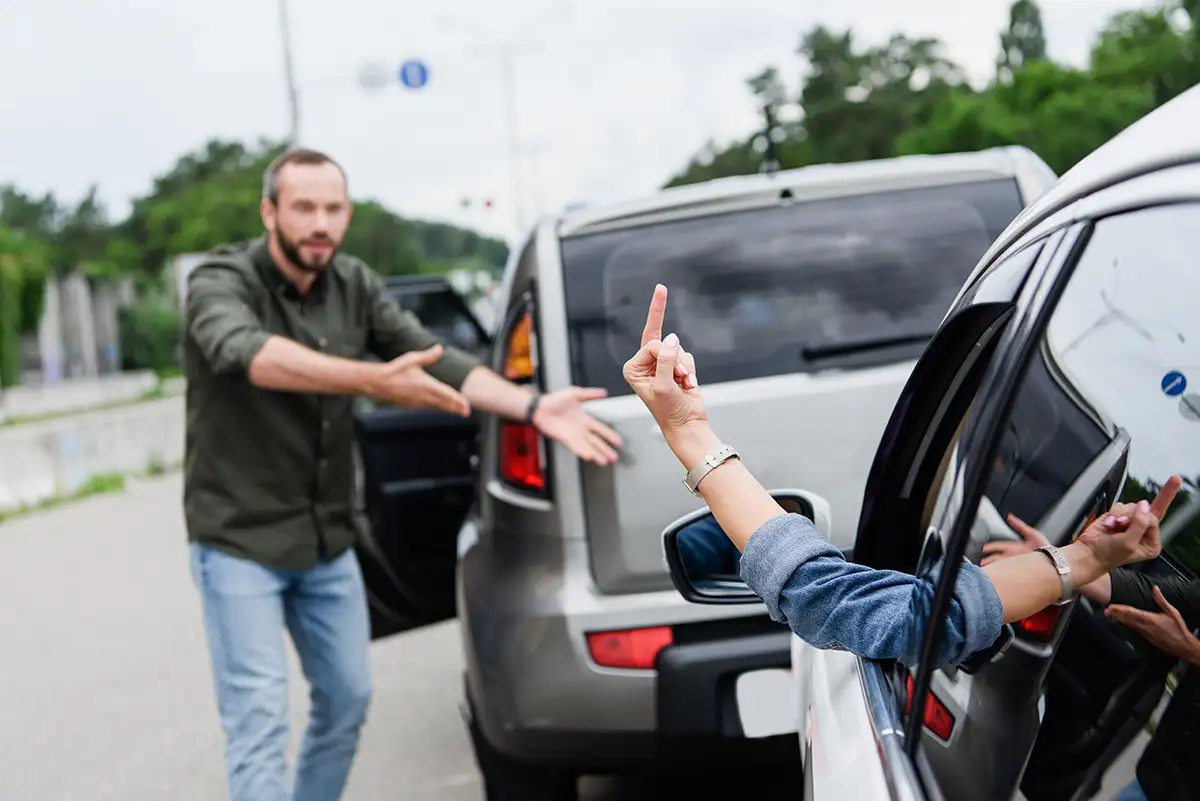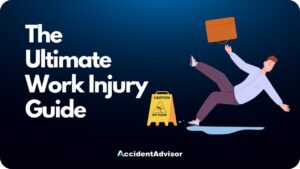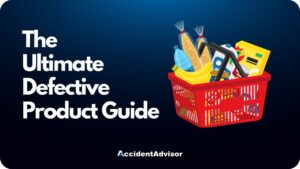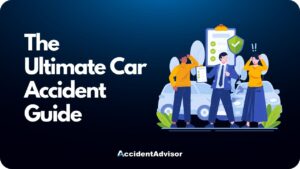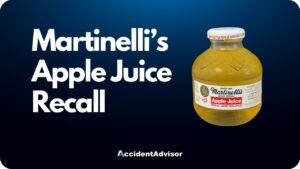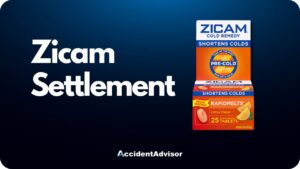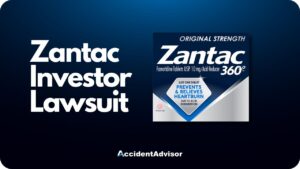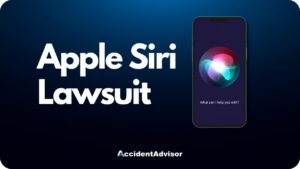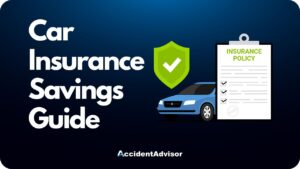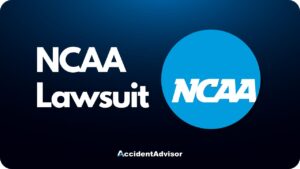If you crash your car, you need to know what NOT to do after a car accident to ensure that you stay safe, manage the timeline of your insurance claim, and avoid incriminating yourself. Many drivers make the mistake of saying too much, too little, or the wrong things following an accident, jeopardizing their ability to claim compensation from their insurer. Sometimes, their actions can even lead to legal trouble.
Continue reading to learn what NOT to do after a car accident. An experienced car accident attorney is your best line of defense against making these mistakes since they know what judges, police officers, juries, and insurance adjusters look for when evaluating a car accident case. In the meantime, these tips can help remind you of what actions you should avoid in the hours, days, weeks, and months following your accident.
Table of Contents
- Don’t Leave the Scene of the Accident.
- Don’t Forget to Call the Police or 911.
- Don’t Forget to Remain Calm at the Scene.
- Don’t Admit Fault to Anyone. Ever.
- Don’t Forget to Document Everything at the Scene.
- Don’t Speak with Insurance Adjusters at the Scene.
- Don’t Forget to Seek Medical Attention for Soreness and Injuries.
- Don’t Speak to the Other Driver’s Insurance Company.
- Don’t Discuss the Accident with the Other Driver.
- Don’t Provide a Written Statement to Your Insurance Company.
- Don’t Allow Anyone to Access Your Medical Records.
- Don’t Post Anything About the Accident on Social Media.
- Don’t Agree to a Settlement Agreement without Speaking to a Lawyer.
- Conclusion
Don’t Leave the Scene of the Accident.
Never leave the scene of the accident, even if the damage is minor and you don’t believe you were at fault.
You are legally obligated to make sure that the other driver and passengers are okay (it’s called “duty of care”), and you are required to share personal information with the other driver. This includes your name, address, the make and model of your car, your insurance policy number and vendor, and phone number. You should collect this from them as well.
If you leave the scene of the accident, you not only won’t be able to make a claim with your insurer to be compensated for the damage but you also may be charged with a hit and run. Even if the other driver doesn’t want to stop, call the police, or exchange information, you must make every effort to do those things to keep yourself in the clear.
Don’t Forget to Call the Police or 911.
Some accidents could be classified as too minor to involve the police, such as those that take place on private property, but any accident on a public road needs to be reported to the police. 911 is only required if someone has been injured. Otherwise, calling the regular police line is enough to get someone on the scene to document it.
The officer on the scene will create a report based on the available evidence, which includes the conditions of the accident, the damage to the vehicles or property, the testimonies of both drivers, and any relevant witness accounts.
This information will go into a police report. Obtain a copy of this report for your insurance claim later by making sure you get the police officer’s name and case number so that you and your attorney can retrieve it later.
Don’t Forget to Remain Calm at the Scene.
The question of what NOT to do after a car accident mostly involves how to stay physically and legally safe, but your mental safety is important too. Remain calm at the scene so you can confront this difficult situation with a clear head, as well as avoid incriminating yourself.
If you lose your temper at the scene or create a confrontational situation with the other driver or the police officer, you may be in trouble even if you were not at fault for the accident. The officer may interpret your mood as an admission of reckless behavior that could have contributed to the accident. If it gets bad enough, they may even arrest you.
Keep your judgment clear by keeping your senses calm. Take long, deep breaths, assess the situation rationally, and respond to the other driver with a relaxed, objective attitude.
Don’t Admit Fault to Anyone. Ever.
Don’t admit fault for the accident to anyone, including the other driver, the officer, the witnesses, or even your passengers. Even if you feel you are responsible for the accident, you may not be legally at fault if you don’t say anything. If you do admit fault, however, the insurance adjuster will find out and use it against you.
Remember that admissions of fault can be subtle. They can involve not only blatant admissions but also small gestures, such as an apology. Don’t say you’re sorry to the other driver, even if you are.
Don’t Forget to Document Everything at the Scene.
Though the police will take down information at the scene, you shouldn’t forget to document it yourself for you and your attorney to use later. We already mentioned retrieving identifying and insurance information from the other driver. You should also collect evidence.
This includes witness statements and contact information, details about the weather, and your recollection of the events of the crash. Take photos of the cars, the license plates, any property damage, and other relevant conditions of the road such as skid marks. You want as much hard evidence as possible to back up your memory of the events later.
Don’t Speak with Insurance Adjusters at the Scene.
In addition to watching what you say to the other driver, don’t speak with the insurance adjusters at the scene. Once the accident is reported, representatives from either your or the other driver’s insurer may arrive to ask questions and gather evidence.
Remember that your insurer is not your ally. They will do everything they can to incriminate you to save the insurance company money. You are not legally obligated to speak with either adjuster, and you shouldn’t say anything except the basic facts.
Anything else could be used to incriminate you later, even just saying “I’m fine” when they ask you how you are.
Don’t Forget to Seek Medical Attention for Soreness and Injuries.
Even if you don’t think you need medical attention, you should always get it as soon as possible after your accident. If 911 was called to address injuries at the scene, don’t refuse medical care from the emergency responders as this could be interpreted later as a sign that you weren’t injured.
Not only is it incriminating to refuse care, but you may need it anyway to assess potentially latent injuries like whiplash. If no medical care is available at the scene, see an emergency care physician or primary care doctor as soon as possible to evaluate and document your injuries.
Failure to do so could result in the insurer claiming that you were injured after the accident.
Don’t Speak to the Other Driver’s Insurance Company.
You should never speak to the other driver’s insurance company. We already mentioned not to speak with the adjuster on the scene, but you should also know that they may call you in the weeks and months following the accident to get information from you.
You are not obligated to give them information or even speak to them, and you shouldn’t. They will be actively looking for ways to incriminate you in the accident so that the insurer they represent doesn’t have to pay for the damages.
Speak with your attorney and always let them handle the adjusters from their end.
Don’t Discuss the Accident with the Other Driver.
You will likely need to speak with the other driver at the scene of the accident, but you should avoid discussing the crash outside of collecting identifying information and making sure everyone is okay.
If you get heated, apologize, or say anything outside of that, you can be incriminated in the accident later. Remember that they may have read this article too and may know how conversations at accident scenes work.
Outside of the scene of the accident, never speak with the other driver under any circumstances or even answer their calls. Anything you say at that point can hurt your case later.
Don’t Provide a Written Statement to Your Insurance Company.
You should not provide a written statement to your insurance company concerning the accident, your account of events, your injuries, or anything else. The insurance adjuster may insist on getting this from you because they know that anything you write could potentially be used against you.
If the insurer insists on getting a statement, speak with your lawyer about what you are required to do. If you must write a statement to the insurance company, stick to the facts in the police report since these have already been observed and documented in the case and can’t incriminate you any further.
Don’t Allow Anyone to Access Your Medical Records.
You should not allow the insurance company, their adjusters, or the other driver to access your medical records. These records are confidential between you and your doctor and must be legally signed for release for anyone else to see them.
Since your injuries will be a major factor in determining fault and compensation in the accident case, you should always make sure that your records remain confidential. Only speak with your attorney about medical details so they can advise you on what doctors you should see, what releases you should sign (if any), and what you should report in your testimony.
Don’t Post Anything About the Accident on Social Media.
You should avoid posting about the accident on your social media accounts since any information you put there can be used against you by the insurance adjusters. You may think you can get by with something silly or seemingly non-incriminating, but rest assured that an acute insurer will pick up on any reason to deny you compensation.
For example, you may simply post that you’re “doing well” after the crash. Even if you don’t mean it, the adjuster may use this statement to claim that your injuries were not as severe as your lawyer claims. If you hope to get fully compensated for the crash, keep yourself off of social media completely until the settlement is finalized.
Don’t Agree to a Settlement Agreement without Speaking to a Lawyer.
Don’t agree to a settlement until you’ve talked it over with an experienced car accident attorney. Insurance companies often send lowball offers after an accident hoping that you haven’t read an article like this. You may think the offer is fair or that you don’t want to deal with the lengthy process of compensation.
However, accepting this initial offer could cost you thousands or even hundreds of thousands of dollars since insurers (even your own) will try to shortchange you. You’ll regret it if you’re stuck with expensive medical bills later because you didn’t talk over your car accident settlement with an attorney first.
Conclusion
The basic rule of what NOT to do after a car accident is to follow the procedure at the scene and not say more than you have to. In the days and months following the accident, refrain from speaking about the accident to the other driver, the insurance companies, or even on social media. Speak only with an accredited car accident attorney to ensure that you are acting in the best interest of your compensation case.
Learn what to do if your are being sued after a car accident.

Rocky Horton
Author
Rocky Horton is a health and safety expert from Chapel Hill, NC. He is the founder of AccidentAdvisor and has been featured in Forbes, Bloomberg, and other publications. Learn more.

